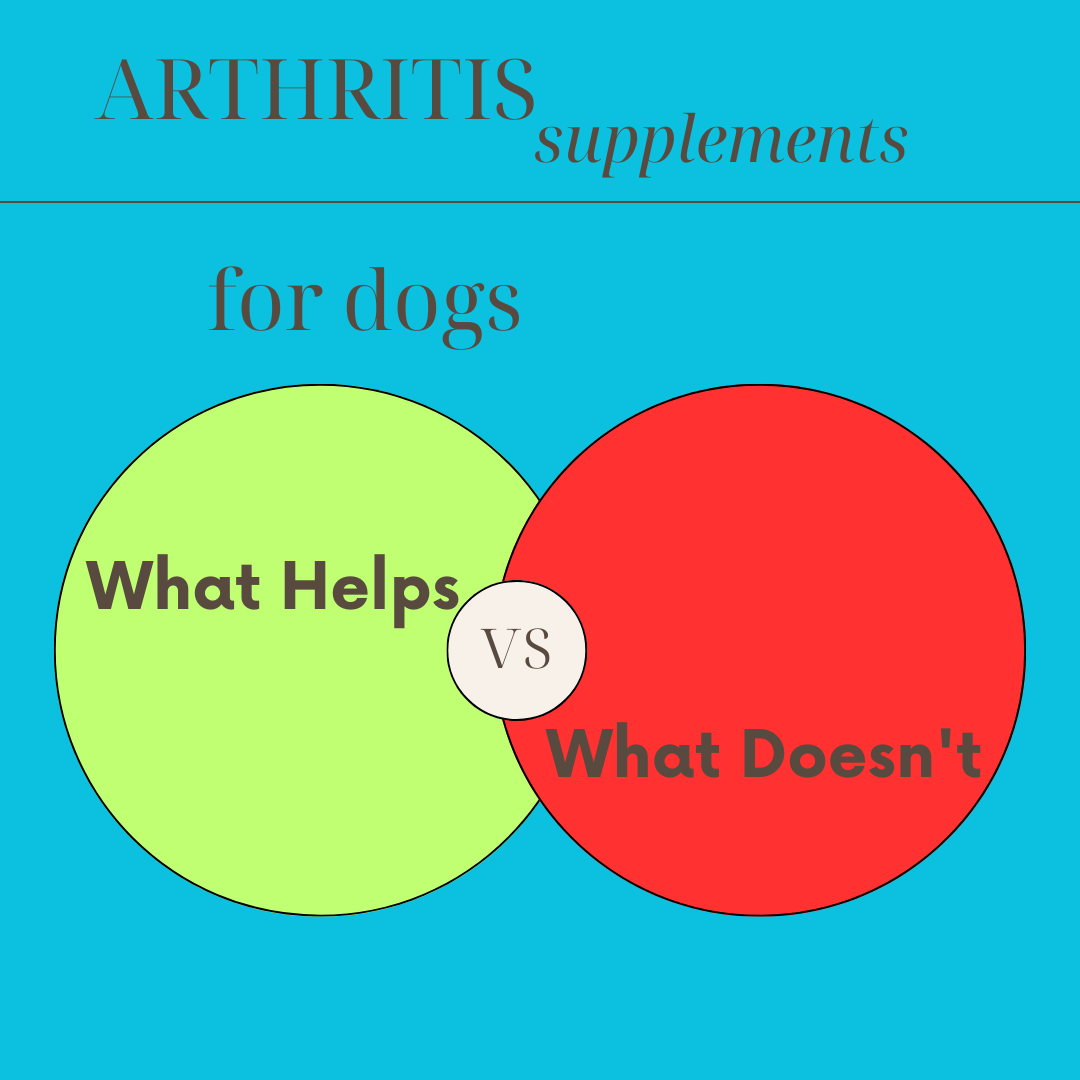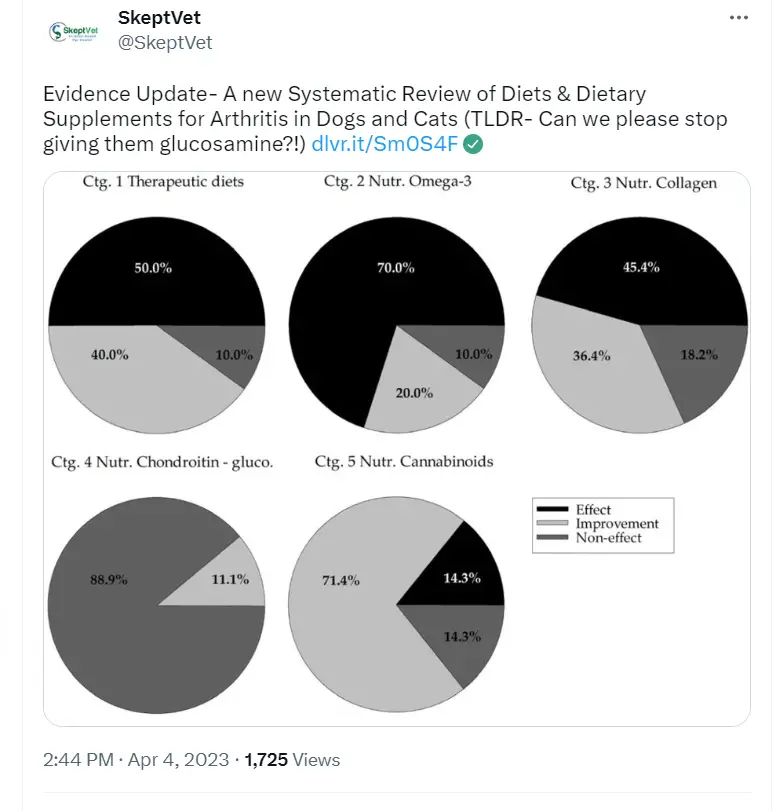Arthritis Supplements for Dogs New Research Review

Well, crap friends. There’s some surprising new intel on arthritis supplements for dogs in a recently published veterinary paper that looked at a bunch of prior studies into various types of enhanced diets, nutraceuticals, and arthritis supplements for dogs (and cats).
I emailed the paper to our main DVM. We’ll talk about it more when the dogs get their wellness exams soon. I very well may be changing my strategies for preventing and helping my dogs with joint supplements. (Or not, keep reading to the end.) What works? What doesn’t? What’s *maybe on the horizon as the next big thing in arthritis supplements for dogs? Let’s find out.
Glucosamine-chondroitin arthritis supplements for dogs don’t work.
I won’t bury the headline. That’s where we’re headed. I also found, though, support for some what I do with arthritis supplements for dogs, and some new ideas on maybe what to try next.
I first learned about this new paper from @SkeptVet on Twitter. You can read his online post in detail here. Evidence-based veterinary medicine is his thing, and I’ve learned a lot over the years by following, etc.

Here’s what jumped out at me when I read through the paper. I encourage you to download and read full text yourself here.
Arthritis Supplements for Dogs Key Points from New Paper
- Nothing cures or structurally improves osteoarthritis (OA) in dogs. The paper’s authors say this (emphasis mine):
“To the best of the authors’ knowledge, no therapeutic approach has any indication of a delayed effect on the progression of OA. Thus, the terms ‘chondroprotective,’ ‘structuremodulator’ or ‘disease-modifying’ do not yet apply to the therapeutic approaches available in pet OA, with all therapeutic indications revolving around an improvement in the behavioural or physiologic signs associated with OA pain.”
- Arthritis supplements for dogs (and cats) end up on the market, not because there is any proof they work, but instead … it’s mostly that they don’t seem to cause harm. The paper’s authors explain this point as follows (emphasis mine):
“However, regulatory assessments of these compounds primarily focused on the absence of side effects (safety), quality and nutrition but did not require proof in therapeutic efficacy.”
Arthritis Supplements for Dogs – What Works and What Doesn’t
The headline, though, is that some arthritis supplements for dogs that work have higher quality research than some that don’t. The authors explain (emphasis mine): “Collagen-based (ctg. 3) and chondroitin-glucosamine-based (ctg. 4) nutraceuticals stand out with a higher presence of lower-quality trials. The quality level ratios (the number of AB/CD level trials) were 0.6 and 0.8, respectively, for these two categories. Conversely, omega-3-enriched therapeutic diets (ctg. 1), omega-3-based nutraceuticals (ctg. 2) and cannabinoids (ctg. 5) had more high-quality trials as evidenced by the quality level ratios of 4.0, 2.3 and 2.5, respectively.”
The paper basically goes on to say that omega-3-based arthritis supplements for dogs “stand out in terms of effect,” meaning dogs show improvement in behavior and pain scores. Then, the authors, make the comparison to chondroitin-glucosamine-based nutraceuticals “stand out for their lack of efficacy with 88.9% non-effect and 0% effect.” That means of the prior studies reviewed a bunch showed that chondroitin-glucosamine did NOT work and 0% showed it did. Yikes!
